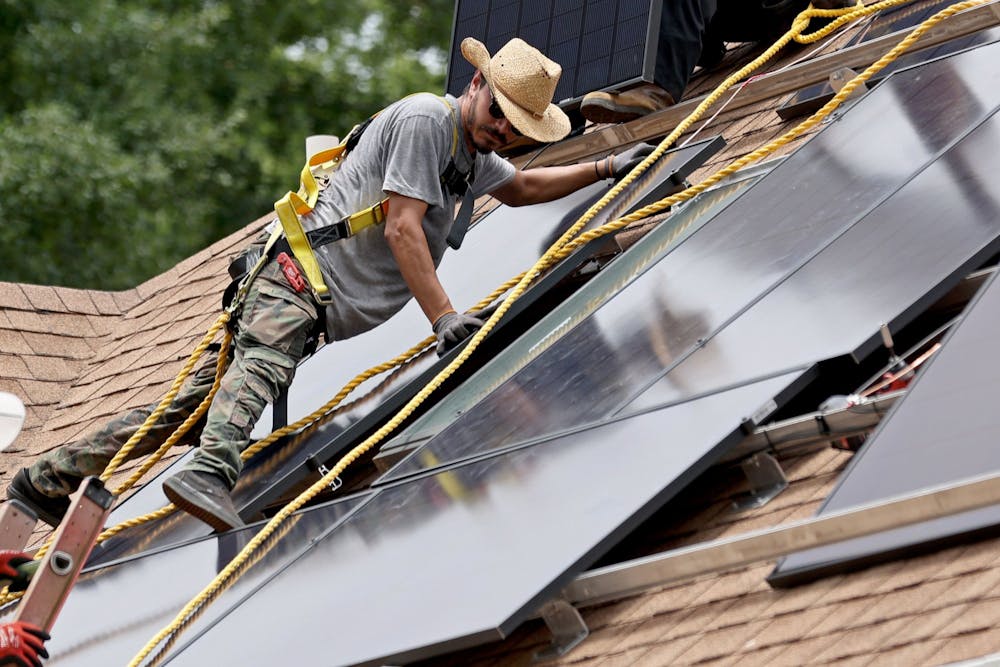The City of Bloomington’s Department of Economic and Sustainable Development has two programs helping homes, nonprofit organizations and small businesses within city limits transition to using solar energy in 2023.
The two programs, Bloomington Green Home Improvement Program and the Solar, Energy Efficiency, & Lighting Program, were launched in 2021 to help finance renewable energy installations to use more clean energy in Bloomington.
Mckaylyn Lynch, sustainability program coordinator for the Department of Economic and Sustainable Development, said this year, both programs are partnering with MPI Solar as their solar installer. Anyone who has solar installations through SEEL and BGHIP works with MPI Solar after their applications for the program are accepted.
Lynch said to manage the volume of projects being worked on, they are breaking the application process for SEEL into cohorts, while the applications for BGHIP are open all year. Applications for SEEL’s first cohort close Feb. 24 and applications for cohort two will open a week later.
[Related: Bloomington to receive $1.9 million in grant funding]
David Mann, president and founder of MPI Solar, said they were accepted to partner with the city for 2023 as its solar energy provider for these solar initiatives. Mann said one of the accepted applicants for SEEL is the Community Kitchen, with whom they will be working soon on design and installation details.
“I have to give kudos to the city for developing this program and making it available to entities within the city limits,” Mann said.
Lynch said BGHIP focuses on homeowners. The program is partnered with Hoosier Hills Credit Union and Clean Energy Credit Union to provide discounted interest rates on financing for energy efficiency programs and solar installations for homeowners in Bloomington.
Lynch said the partnerships allow for discounted loans and thousand-dollar rebates based on income for houses that make $150,000 a year or less and that since the launch of the program in 2021, over $20,000 has been provided to residents in the form of direct rebate.
She said SEEL is similar to BGHIP but focuses on nonprofit organizations and businesses in Bloomington, providing energy estimates and working with financial partners for these solar projects. She said that as of 2023, the SEEL program has extended to small businesses.
Bloomington is also partnered with the Solar Indiana Renewable Energy Network, a nonprofit volunteer-run group with a focus on educating and promoting the use of solar power systems, Darrell Boggess, member of the SIREN steering committee, said.
“We see our role as educators and communicators,” Boggess said. “Fundamentally we’ve recognized for a long time that we don’t have more solar energy in this part of the country because people don’t understand it or know who to talk to about it.”
[Related: Mayor envisions successful future for Bloomington in his final State of the City address]
Boggess said the city receives federal money for the transition to solar energy of Bloomington properties and grants for larger installations to have more solar energy.
Anne Hedin, member of the SIREN steering committee, said the City of Bloomington has made a lot of decisions to move toward solar energy because of its partnership with SIREN over the past six years. Hedin said SIREN makes decisions with the city about what vendors to choose for the Solarize Bloomington Program, which helps consumers make better decisions about energy and helps participants negotiate costs of solar adoption.
“We don’t make city decisions. We just help consumers make better decisions about solar energy,” Hedin said.




